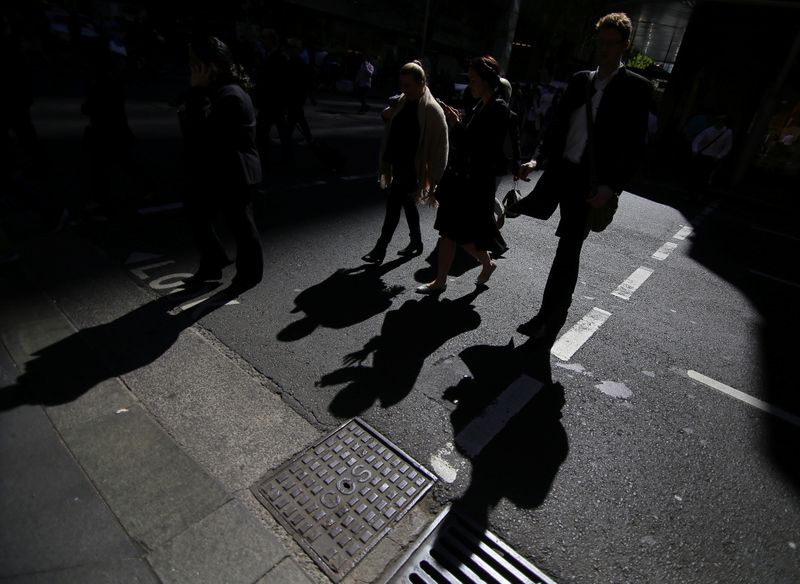By Wayne Cole
SYDNEY (Reuters) - Australia's economy was already slowing in the June quarter before wide-spread coronavirus lockdowns slammed everything into reverse, leaving the country in a desperate race to vaccinate in the hope of opening up to recovery by Christmas.
Figures from the Australian Bureau of Statistics out on Wednesday showed gross domestic product (GDP) rose 0.7% in the June quarter. That was a step down from 1.9% in the March quarter, but topped forecasts of 0.5% and avoided analysts' worst fears of a negative outcome.
Annual growth was the fastest in modern history at 9.6%, but only because the pandemic caused a severe contraction in the June quarter last year, which was dropping from the calculation.
That painful pattern was playing out again as strict stay-at-home rules in Sydney, Melbourne and Canberra are set to see the economy shrink 2-3% or more this quarter.
The conservative government of Prime Minster Scott Morrison is pinning its hopes on a vaccination roll out that is gathering steam after a ham-fisted start.
Current projections are the country could reach 70% of adults vaccinated some time in October, which would allow for a relaxation of rules. Mass lockdowns could be abandoned altogether at 80%, which is tipped for November.
"Assuming the vaccination rollout continues at its current pace it is likely the Eastern states will begin to re-open in the December quarter, and this will enable the economy to recover," said Sarah Hunter, Chief Australia Economist for BIS Oxford Economics.
"But the shift to a new COVID-normal, where there are persistent cases within the community, will make some people cautious and the recovery this time around will be drawn out into 2022."
The Reserve Bank of Australia (RBA) has been counting on a rapid recovery once the restrictions ease, though the spread of the Delta variant has made its latest forecasts for growth look optimistic.
The central bank is now under pressure to delay a tapering of its bond buying programme planned for this month, and is not expected to raise interest rates from record lows of 0.1% until at least 2023.
The June quarter figures did show strength in consumer and government spending, housing and business investment, though much of that was offset by drags from net exports and inventories.
On the positive side, nominal GDP reached a record A$2.07 trillion ($1.51 trillion) for the year, making it the world's 11th largest economy. Output stood at A$80,432 for every one of Australia's 25.6 million residents.
That outperformance owed much to super-high prices for many of the country's resource exports, which boosted its terms of trade by a massive 7.0% in the quarter and 24% for the year.
The flood of cash boosted company profits, tax receipts and employment, helping lift national incomes and so nominal GDP by a robust 3.2% in the quarter.
There was some moderation in the household savings ratio to 9.7%, but spending power has been underpinned by a boom in house prices which even seems impervious to the spread of Delta.
($1 = 1.3665 Australian dollars)
